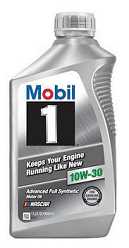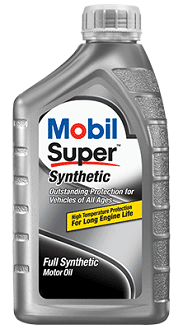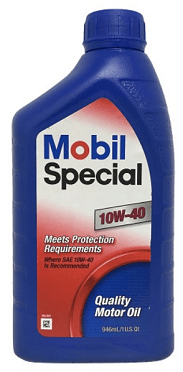Engine oil is essential. In fact, there is nothing more important that you can do for your engine than to change its oil on a regular basis. Engine oil (AKA “motor oil”) lubricates all of the moving parts inside your engine by creating a thin slick barrier between them. This lubricant layer reduces friction so that engine components do not rub directly against one another. And it helps to keep your engine cool. Quality oil also cleans out harmful engine deposits – and serves to keep them from developing. If you want to keep your car running at peak performance, the correct kind and quality of oil is your best bet.
But what is meant by “correct” oil? What kind of oil is best for your vehicle? And how can you tell if it is high quality?
Engine Oil Certification
The first place to start when choosing oil for your engine is with the American Petroleum Institute or API. API is a national trade association representing the natural gas and oil industry. Since its beginnings around the time of the first world war, API has become one of the most credible sources of data in the industry, working to standardize oil production and offering more than 700 standards and recommended practices ranging from drilling and environmental protection to engineering and final products.
API also offers a voluntary licensing and certification program that authorizes marketers of engine oil to display the API Engine Oil Quality Marks – symbols reserved for products of verified quality. Any oil that you choose for your engine should bear the “Starburst” API Certification Mark and the “Donut” API Service Symbol.
Grade or Viscosity
Next is determining the proper grade of oil your engine needs. The Society of Automotive Engineers (SAE) has developed a grading scale for the viscosity of various engine oils. Viscosity is a measurement of a substance’s resistance to flow at a given temperature – essentially how thick it is.
Engine oil grades are seen as a series of characters such as 5W-30 or 10W-30, where the first number represents the viscosity of the product in the cold, the “W” stands for “winter”, and the second number is the viscosity at high temperatures.
As engines have become smaller and more efficient, oil technology has had to become more sophisticated to keep up. Old, “straight-weight” oil is no longer used in passenger vehicles. Instead, multi-weight oils like 5W-30 are standard. Multi weight oil has a low viscosity when the engine is cold (especially in winter) so that it can more easily lubricate in all of the small spaces between engine components. But as oil heats up, it naturally gets thinner. So, additives are included in the oil formula to make it resist thinning as temperatures rise. That way, an oil can be 5-weight when cold and 30-weight when warm.
Automotive engineers are constantly developing engines that are lighter and have tighter tolerances. These advances result in engines that are both powerful and fuel-efficient at the same time. And these changes bring about the need for thinner and more refined engine oils. Whereas just a few decades ago, 10W-30 (and even straight 30) oil was common, today ultra-lightweight oils abound: 5W-20, 0W-20, and even 0W-16.
Special Use
In addition to API certifications and different grades of engine oil, oil companies also offer a range of products to meet special engine needs. For instance, vehicles with high mileage (generally 80K miles or more) benefit from an oil formulation that helps to prevent leaks and carefully cleans old engine deposits. Start-stop vehicles need protection from constant re-starting cycles. High-tech engines, as well as those in heavy-duty and off-road vehicles each have their own sets of needs. Sometimes it is necessary to keep these special uses in mind when selecting engine oil.
Synthetic vs. Conventional Oil
Debates have and will continue to rage on about the benefits of, and need for, synthetic oil over conventional oil. Conventional engine oil is derived and distilled from crude oil pumped from the ground. Because of its origin, conventional oil contains impurities and is comprised of molecules of uneven size and shape. On the other hand, synthetic oil is made artificially in a lab. It might have begun as a highly-refined crude oil product, but it is essentially man-made. Because of that, synthetic oil is extremely uniform and consistent. It contains higher-quality additives and can be manufactured to lower viscosities than conventional oil. The result is a product that resists thermal breakdown, cleans effectively, and lubricates efficiently.
Some suggest that not all engines need (or benefit much from) synthetic oil. So why pay the price? A hefty price indeed, synthetic oil can cost several times that of conventional oil. Others assert that while all oil needs to be changed periodically, synthetic oil is capable of lasting much longer between oil changes, thereby offsetting some of the cost. And if you choose synthetic oil, you are receiving the peace of mind that can come with a superior product filling a most important role in your engine.
Another option besides synthetic oil and conventional oil is a synthetic blend – essentially a mix of both synthetic and conventional materials. While synthetic blends offer some of the benefits of synthetic oil, they also come with some of the downsides of conventional oil. They are, however, an option for motorists looking for an improved product without the big price tag of full synthetic oil.
Mobil 1™ and other Mobil Oil Products
A quick search on the internet or down the automotive aisle will show that you have many types, grades, and specialty use oils to choose from. At the top of the mountain of motor oils is Mobil Oil, the maker of the celebrated Mobil 1™ synthetic oil. Any discussion about choosing the right type of engine oil for your car, truck, or SUV should include Mobil products. Consider a few of their offerings:
Mobil 1™ Full Synthetic
Mobil 1™ is the flagship of the Mobil Oil line. Ever since its arrival on the scene in the nineteen seventies and its prominence in Formula One racing, Mobil 1™ has been the leader in synthetic motor oils. In the nineties, it proved itself in the “Million-Mile Test” and became the synthetic oil of choice for major auto manufacturers. Today, Mobil 1™ is considered the number one brand of synthetic motor oil and is available in several varieties: Advanced Formula, Extreme Formula, Extended Performance, and Truck and SUV Formula.

Mobil Super Synthetic
Offered at a lower price point than Mobil 1™, Mobil Super Synthetic motor oils are designed to provide excellent engine protection in all kinds of weather and driving conditions. These are still full synthetic oils that will provide added benefits across a broad range of temperatures. Mobil’s Super line of products also includes synthetic-blend products, but those are outperformed by Super Synthetic.

Mobil Special
For auto owners who prefer to stick with conventional oil products, Mobil Special™ still meets API standards and costs less than synthetic oils. Mobil Special™ oils are formulated from high-quality base oil stocks and are combined with performance additives to protect your engine and improve performance.

The Answer For Your Car
So, what is right for your car? What grade oil should you use? Should you use synthetic or conventional oil? And how often should you have it changed?
When it comes to the grade of oil to use in your engine, check with the vehicle manufacturer. You can find their recommendation in your vehicle owner’s manual. Or you can ask the professionals at a trusted repair shop. One size does not fit all; each engine is designed to work with a specific grade of oil. Using 10W-30 oil in a vehicle that calls for 0W-20 could cause some pretty awful results.
Same may go for synthetic oil over conventional. While many vehicles come from the factory loaded with conventional motor oil (and it is fine to replace it with the same), more and more engines are designed to work with (and contain) synthetic oil from the factory. In these cases, it is necessary and even required to replace it with synthetic oil. But even if your car came with conventional oil, you might decide to upgrade to higher-performing synthetic for best results. Again, consult with a trusted professional.
As for how often to change your oil, unless you drive in extremely harsh conditions, never mind the age-old suggestion to change it every “three months or three thousand miles.” That is unnecessary. The vehicle manufacturer also has a recommendation for intervals between oil and filter changes included in its routine maintenance schedule. Most manufacturers suggest somewhere between 5K and 7.5K miles. Some even more. Check your owner’s manual for specifics.
Columbia Auto Care & Car Wash | Author: Mike Ales | Copyright November 2019
This article is intended only as a general guidance document and relying on its material is at your sole risk. By using this general guidance document, you agree to defend, indemnify and hold harmless Columbia Auto Care & Car Wash and its affiliates from and against any and all claims, damages, costs, and expenses, including attorneys’ fees, arising from or related to your use of this guidance document. To the extent fully permissible under applicable law, Columbia Auto Care & Car Wash makes no representations or warranties of any kind, express or implied, as to the information, content, or materials included in this document. This reservation of rights is intended to be only as broad and inclusive as is permitted by the laws of your State of residence.
